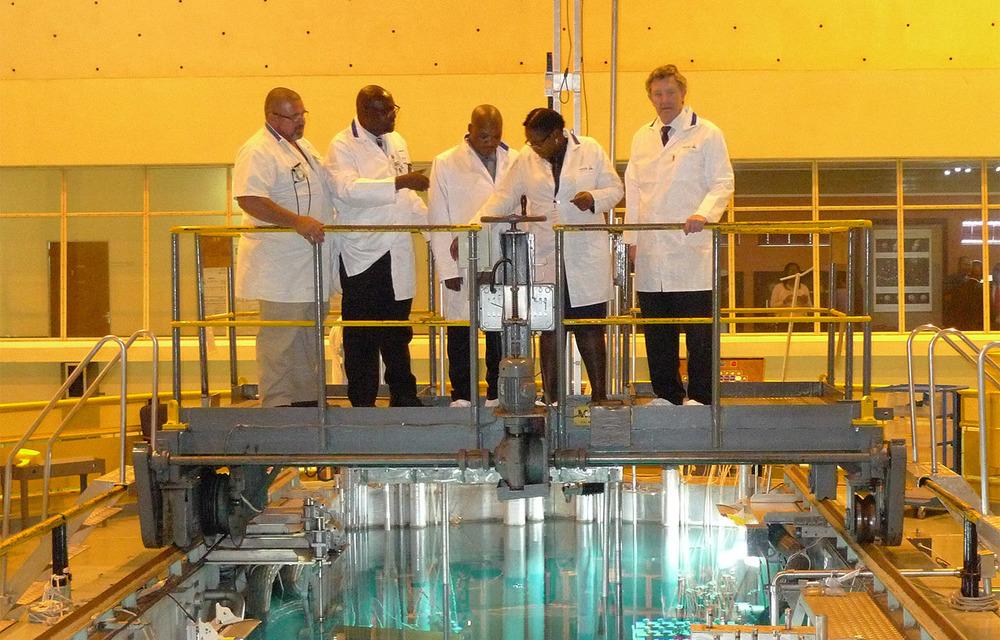Explore Our Bill Payment Services:

- Salary And Allowance
- Engineers Salary
- South Africa
Salary And Allowance Structure Of Computer Engineers In South Africa
If you’ve ever wondered whether a career in computer engineering in South Africa is financially rewarding, you’re not alone. In a world that is becoming more digital by the day, computer engineers have moved from being “backroom techies” to essential drivers of innovation, infrastructure, and business efficiency. Whether it’s designing systems, building hardware-software integration, or making sure large companies run without a single glitch, computer engineers are the invisible hands behind the screens. But let’s face it—beyond the passion for technology, most people also want to know: how much does this career actually pay?
In this post, we’re going to dive deep into the salary and allowance structure of computer engineers in South Africa. We’ll cover average salaries, how experience shapes pay, city-by-city differences, public vs private sector comparisons, and even discuss the bonus and allowance culture (spoiler: don’t expect fat allowances like in oil and gas). By the end, you’ll have a realistic picture of what to expect, whether you’re a fresh graduate considering this field or a seasoned professional looking to benchmark your earnings.
Average Salaries of Computer Engineers in South Africa
Let’s start with the big question: how much do computer engineers earn on average?
Across South Africa, the average computer engineer earns around R25,500 per month, which translates to roughly R306,000 per year. Of course, this figure represents the middle ground. Some entry-level engineers take home closer to R12,500 monthly, while senior or highly specialized professionals can pocket up to R39,700 or more each month.
That’s a wide gap, right? And that’s because computer engineering salaries are heavily influenced by multiple factors—your years of experience, where you live, and whether you work in the public or private sector.
Interestingly, some surveys have pegged the average slightly higher, at around R43,000 per month, but such figures usually reflect big companies in metropolitan areas. In other words, not every job in the field pays that much.
Salary Progression by Experience
Like in most careers, experience is gold in computer engineering. Your first few years may not feel like a financial breakthrough, but as your expertise grows, so does your paycheck.
Here’s how it typically plays out in South Africa:
-
0–2 years of experience: Expect an annual salary of about R175,900 (roughly R14,650 per month). At this stage, you’re mostly learning the ropes, fixing bugs, and assisting on projects rather than leading them.
-
2–5 years of experience: Salaries climb to around R227,600 per year (R18,970 per month). Now you’re more hands-on, trusted with projects, and starting to take on specialized tasks.
-
5–10 years of experience: At this stage, you’re well into mid-career territory, with average earnings of about R315,700 annually (R26,300 per month). This is when many engineers begin moving into senior roles or start leading teams.
-
10–15 years of experience: By now, you’ve built up significant expertise and credibility, earning roughly R388,100 a year (R32,340 per month). You might also be in managerial or project lead positions.
-
15–20 years of experience: Salaries level up to about R419,400 annually (R34,950 monthly). Veterans at this stage often act as consultants, senior managers, or technical experts for large-scale projects.
-
20+ years of experience: The most seasoned professionals earn around R444,300 a year (R37,025 per month). By this point, you’re likely highly specialized or in leadership positions where your word carries serious weight.
The takeaway? Salaries nearly double between your early years and your first decade in the field. Patience and skill development really pay off here.
Salaries by City
Not all South African cities are created equal when it comes to pay. Where you live (or choose to work) can significantly influence your earning potential as a computer engineer.
Here’s how it breaks down:
-
Cape Town: Around R345,100 per year. With its growing tech hub status and start-up culture, Cape Town offers some of the best opportunities for engineers.
-
Durban: About R335,100 per year. Durban isn’t as tech-saturated as Cape Town or Johannesburg, but there are still well-paying roles.
-
Johannesburg: Roughly R325,900 per year. As South Africa’s economic powerhouse, Johannesburg provides solid opportunities, particularly with banks and corporates needing IT infrastructure.
-
Bloemfontein: Approximately R294,700 per year. A quieter city with fewer opportunities compared to the metros, hence the lower average pay.
-
Port Elizabeth: Around R288,700 per year. Similar to Bloemfontein, salaries are lower here compared to the big tech hubs.
So, if you’re willing to relocate, Cape Town and Johannesburg tend to offer the best financial rewards.
Public vs Private Sector
One interesting finding is that public sector roles actually edge out private sector roles slightly in terms of base pay. On average, computer engineers in the public sector earn around R386,400 annually, while their counterparts in the private sector earn about R361,500 annually.
That said, the private sector often makes up for it with faster career progression, better performance incentives, and opportunities to work on cutting-edge projects. So while the numbers might make the public sector look more appealing at first glance, the private sector may still be more lucrative in the long run for ambitious professionals.
Comparing Computer Engineers with Software Engineers
For a bit of context, computer engineers often get compared to software engineers. While the roles overlap in some areas, salaries do show some differences.
On average, computer engineers earn about R28,000 per month, while software engineers bring in closer to R36,000 per month. Why the gap? Software engineering roles are more directly tied to product development, coding, and application creation—areas where companies often see immediate profit. Computer engineering, while critical, is sometimes seen as more supportive in nature, especially when tied to hardware and systems integration.
Still, both fields are strong earners, and the lines between them are increasingly blurred in today’s tech-driven workplace.
Allowances and Bonus Structures
Now let’s talk about the extras. Unlike in some industries—say, banking or oil and gas—allowances and bonuses in computer engineering aren’t exactly life-changing.
Bonuses
Only about 30% of computer engineers report receiving any form of bonus, and when they do, it usually ranges from 1% to 4% of annual salary. So if you’re hoping for a 13th check or fat Christmas bonuses, you may want to adjust your expectations.
On the flip side, in related roles like software engineering, the bonus culture is more robust. Senior software engineers can enjoy annual bonuses of up to R70,000, commissions exceeding R100,000, and profit-sharing schemes worth as much as R153,000.
Allowances
As for allowances like housing, transport, or medical benefits—these are not widely standardized in computer engineering roles. Some companies may offer them, especially bigger corporates, but they are not guaranteed across the board. For most engineers, the bulk of compensation comes from the base salary.
Benchmarking & Career Insights
Even though direct allowance data for computer engineers is limited, insights from related IT professions provide a clear lesson: the more specialized you are, the more valuable you become.
For instance, software engineers with just 2–5 years of experience can earn around R359,000 annually, while those with 11–20 years can pull in up to R690,000 per year, thanks to the mix of bonuses, commissions, and profit-sharing.
This shows that focusing on high-demand skills—whether in computer engineering or software-related fields—can significantly boost earning potential over time.
Summary Table: Salary Recap
| Category | Monthly (ZAR) | Annual (ZAR) |
|---|---|---|
| Entry-level (0–2 yrs) | ~14,650 | ~175,900 |
| Early-career (2–5 yrs) | ~18,970 | ~227,600 |
| Mid-career (5–10 yrs) | ~26,300 | ~315,700 |
| Experienced (10–15 yrs) | ~32,340 | ~388,100 |
| Senior (15–20 yrs) | ~34,950 | ~419,400 |
| Veteran (20+ yrs) | ~37,025 | ~444,300 |
| National Average | ~25,500 | ~306,000 |
| Public Sector | — | ~386,400 |
| Private Sector | — | ~361,500 |
| Cape Town Average | — | ~345,100 |
| Johannesburg Average | — | ~325,900 |
| Bonus prevalence | — | 1–4% (for 30%) |
Insights & Advice for Computer Engineers in South Africa
So, what does all of this mean if you’re in the field or considering it? Here are some key takeaways:
-
Experience Matters Most: Your pay practically doubles between entry-level and the first decade of your career. Stick with it, and the rewards come.
-
Location Counts: Cape Town and Johannesburg offer the highest pay, thanks to their vibrant tech industries.
-
Sector Choice: Public sector jobs might give you a better base, but private companies can offer faster growth and better perks.
-
Bonuses Are Limited: Don’t rely heavily on bonuses or allowances—they’re not standard in this profession.
-
Leverage Related Roles: If you branch into software engineering, IT management, or systems architecture, your earning potential increases significantly.
Conclusion
Computer engineering in South Africa may not make you a billionaire overnight, but it offers solid, steady financial rewards with plenty of room for growth. Salaries range from about R12,500 a month for beginners to well over R37,000 per month for veterans, with national averages sitting around R25,500 per month.
Allowances and bonuses aren’t a strong part of the package, but the career progression, stability, and opportunities to branch into related, higher-paying tech roles make it a highly worthwhile field.
In short, if you have a passion for technology, patience to grow your skills, and the flexibility to chase opportunities in the right cities or sectors, computer engineering in South Africa is a career that will pay you—not just in money, but in relevance in a digital-first future.









